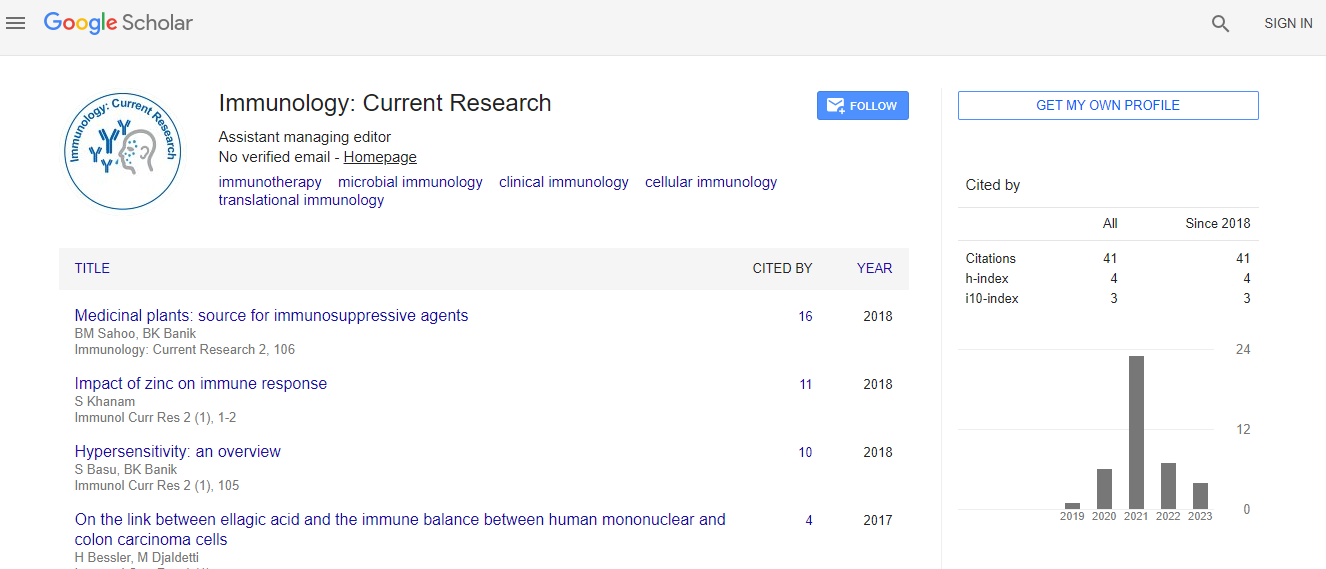Molecular Mechanisms of T-Cell Activation and Their Implications in Immune Disorders
*Corresponding Author:Received Date: Jan 01, 2025 / Accepted Date: Jan 31, 2025 / Published Date: Jan 31, 2025
Citation: Monasi K (2025) Molecular Mechanisms of T-Cell Activation and TheirImplications in Immune Disorders. Immunol Curr Res, 9: 242.DOI: 10.4172/icr.1000242
Copyright: © 2025 Monasi K. This is an open-access article distributed under theterms of the Creative Commons Attribution License, which permits unrestricteduse, distribution, and reproduction in any medium, provided the original author andsource are credited.
Abstract
T-cell activation is a fundamental process in adaptive immunity, playing a critical role in immune responses to
pathogens, cancer, and autoimmune diseases. It begins when T-cell receptors (TCRs) engage with specific antigens
presented by major histocompatibility complex (MHC) molecules on antigen-presenting cells (APCs). This interaction
leads to the activation of intracellular signaling pathways, including the phosphoinositide 3-kinase (PI3K), mitogenactivated protein kinase (MAPK), and nuclear factor-kappa B (NF-κB) pathways, ultimately triggering T-cell proliferation,
differentiation, and effector functions. Dysregulation of T-cell activation can result in immune disorders such as
autoimmune diseases, immunodeficiencies, and cancer. This review outlines the molecular mechanisms underlying
T-cell activation, including the role of co-stimulatory signals, the balance between activating and inhibitory receptors,
and the modulation of T-cell responses by cytokines. Understanding these processes is essential for developing
targeted therapies for various immune-related disorders, highlighting the potential for immunotherapy in diseases like
cancer and autoimmune conditions.

 Spanish
Spanish  Chinese
Chinese  Russian
Russian  German
German  French
French  Japanese
Japanese  Portuguese
Portuguese  Hindi
Hindi 
